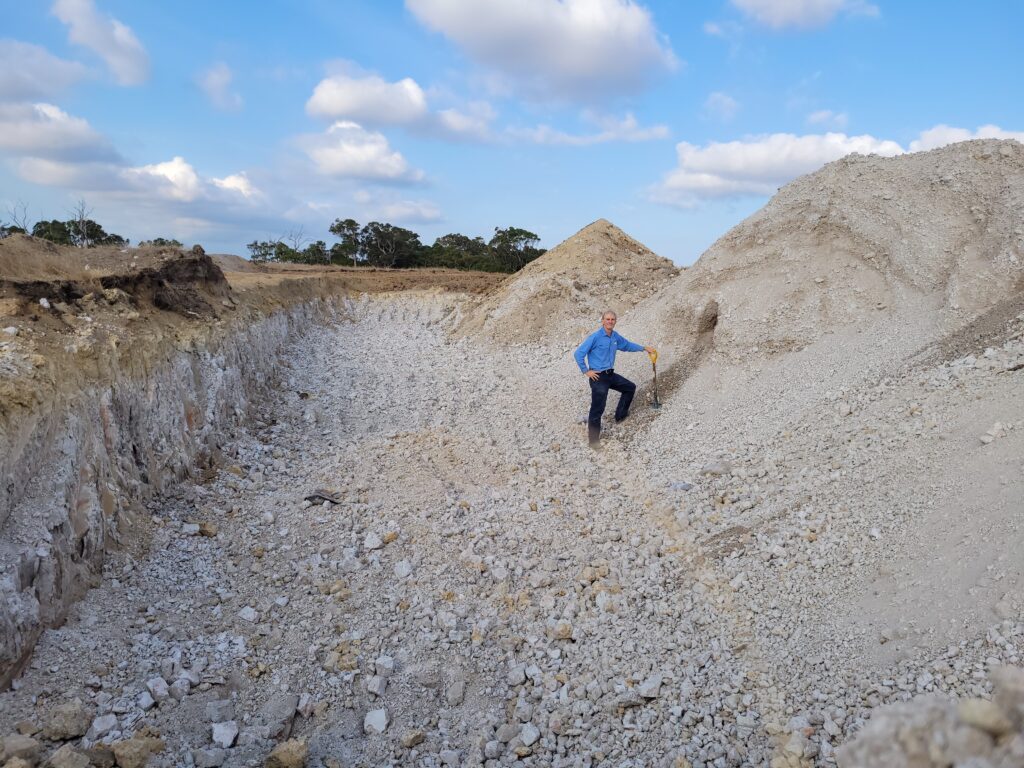Hidden deep in the soil of a dairy farmer’s paddock could be a solution to help look after waterways, prevent harmful algal blooms and improve farm productivity.
Scott River dairy farmer Brad Boley is working with scientists at the Department of Water and Environmental Regulation (DWER) and local catchment group Lower Blackwood Land Conservation District Committee on a new study applying clay from the farm to pasture paddocks. The farm is on sandy soils that have very poor nutrient retention, which makes them seasonally prone to losing nutrients by runoff or leaching to waterways.
The trial will investigate whether clay application increases soil nutrient retention and pasture productivity in an agricultural setting.
The Scott River flows into the Hardy Inlet in Augusta, one of the seven estuaries targeted through Healthy Estuaries WA. Excess input of nutrients (phosphorus and nitrogen) from agriculture, industry and residential sources across the estuary catchments can cause harmful algal blooms with consequences for human and environmental health.
DWER senior soil scientist Dr Brad Degens said that the trial is testing a promising approach for soil remediation in pasture production systems.
“Clays are natural soil building blocks that play an important role in soil nutrient cycling and carbon storage; however, little is known about how to use these in pasture systems to influence phosphorus retention,” Brad said.
“If our studies show that clay application has benefits for nutrient retention and overall soil health, it could be an attractive and cost-effective way for farmers to both improve pasture productivity and benefit waterway health.”
The trial uses two different clay types excavated from the farm. These have been applied across a whole paddock at different rates. The paddock was then planted with a mix of pasture varieties that will be rotationally grazed by cattle in winter and spring as is the usual practice on the farm.

Soil properties and pasture growth will be measured seasonally to determine the impact of the clay application.
Brad said: “We want to understand the influence of the clay on the soil chemistry, especially how well it holds on to phosphorus and other key elements for plant growth such as potassium.”
Two additional clay application trials are underway on other dairy farms in Scott River and Denmark, led by Western Dairy in partnership with farmers, and supported by Healthy Estuaries WA.
The new trials with clays complement existing studies with soil amendment Iron Man Gypsum. This approach is being investigated on sandy soils where clay is not readily available and has been showing positive results for sustained reduction of phosphorus lost to waterways.
This project is part of Healthy Estuaries WA and Revitalising Geographe Waterways. These State Government initiatives aim to support the long-term health of our south-west estuaries.
